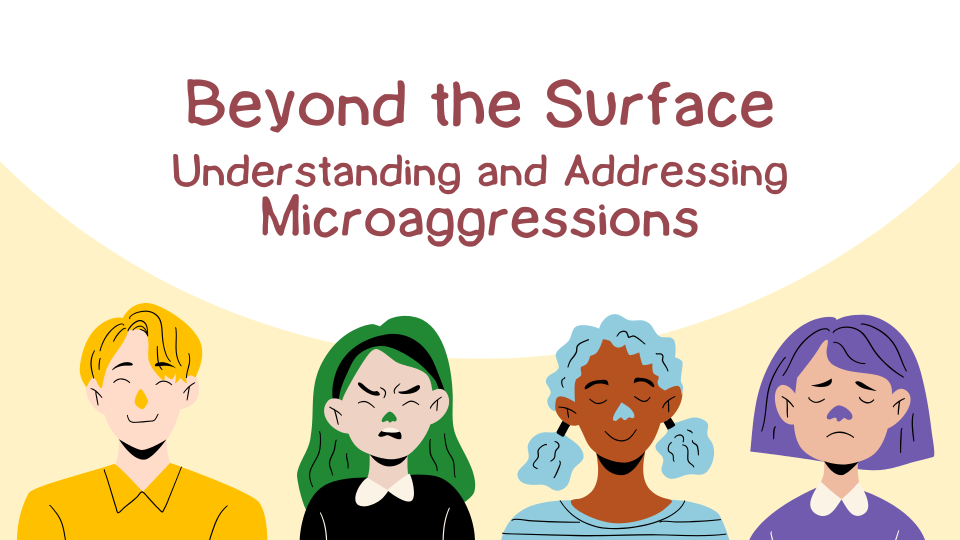There are no items in your cart
Add More
Add More
| Item Details | Price | ||
|---|---|---|---|

You are in a team meeting where someone makes a casual comment about how people from “tier 2 cities” often struggle with client communications.
You pause for a moment because you’re from one. You speak up, lightly: “That’s a bit of a generalization, don’t you think?”
They laugh, “Don’t be so sensitive. It wasn’t about you.”
But it feels like it was. You brush it off at the moment, but that sentence and the easy dismissal that followed stays with you long after the meeting ends.
Later that week, you’re hosting dinner for some visiting relatives. You have been in the kitchen most of the evening - chopping, stirring, plating, and you enjoy it. Cooking calms you.
As you bring out the last dish and sit down, a relative grins and says loud enough for everyone to hear: “Wah, looks like your wife’s trained you well! The apron really suits you.”
There’s laughter around the table.
You smile, because that’s easier than explaining. But a part of you wonders why is care, effort or partnership something to be joked about when a man does it?
These moments are small. But they’re not insignificant.
They’re microaggressions - the subtle digs, dismissals or slights that chip away at our sense of worth and belonging, especially in spaces that are supposed to feel professional, respectful and safe. Often unintentional, usually brushed off but never without impact.
This is the third article in our series on Building Psychological Safety Through Communication. We’ve spoken about the invisible weight language carries and how our words often mirror the deeper culture of a team. And now, we’re looking at the words we tend to overlook — the ones that feel too minor to matter, but over time, leave the deepest marks.
But here’s what we have seen across conversations, coaching sessions, workshops and everyday team dynamics: it’s rarely about being too sensitive.
It’s about being too exhausted from constantly second-guessing, adjusting and brushing things off that shouldn’t have been said in the first place.
It’s not about one comment or one moment. These things add up and over time, they start to tell a story. A story that says:
And when those patterns show up again and again - at work, at home, in everyday conversations; they don’t just hurt in the moment, they linger.
On their own, these moments might seem easy to brush off. But when they keep happening, they start to pile up like a background noise you are tired of tuning out. And that still drains you without you even realizing it.
What’s the real harm in a poorly chosen joke or a lazy stereotype?
Let’s turn it around: What’s the cost of never fully relaxing in a team meeting? Of rehearsing your reactions before sharing an idea? Of smiling when you’d rather correct someone. All of it just because you don’t want to seem “difficult”?
So, what can be the cost of these “Small” Things? The emotional toll might not be visible right away, but it runs deep. Over time:
“Small shifts in awareness can lead to big changes in how we treat each other.”
So what can we actually do? Here’s how we can handle them - whether you’re at the receiving end, witnessing it happen or realizing you have said something hurtful.When it happens to you
You’re presenting an idea in a meeting when someone says, “Oh wow, didn’t expect that level of analysis from someone so early in their career.”
What you might feel:
Dismissed. Frustrated. Unsure whether to react or let it go.
When you witness it
A colleague jokes during a team call: “Let’s not ask Vaibhav about numbers, he’s the creative one.” Laughter follows, but Vaibhav looks visibly uncomfortable.
What you might feel:
Awkward. Unsure if it’s your place to say something.
Try this:
So, the next time someone gently points out something you said - pause before defending. Listen. Reflect. Thank them. They’re doing something brave.
No, we won’t always get it right. But when we choose awareness over autopilot, and respect over routine, we begin to build something bigger — cultures of care, workplaces where voices don’t just get heard but are valued, personal choices where contribution isn’t boxed into gender roles and teams where people feel they truly belong.
And isn’t that what we all want — not just to fit in but to feel safe, seen and respected?
That’s not too sensitive. That’s human.

Ishita Mukherjee
Integrity-Driven Growth Strategist | Creative Marketing Innovator | Reliable Problem-Solver | Committed to Continuous Learning & Excellence